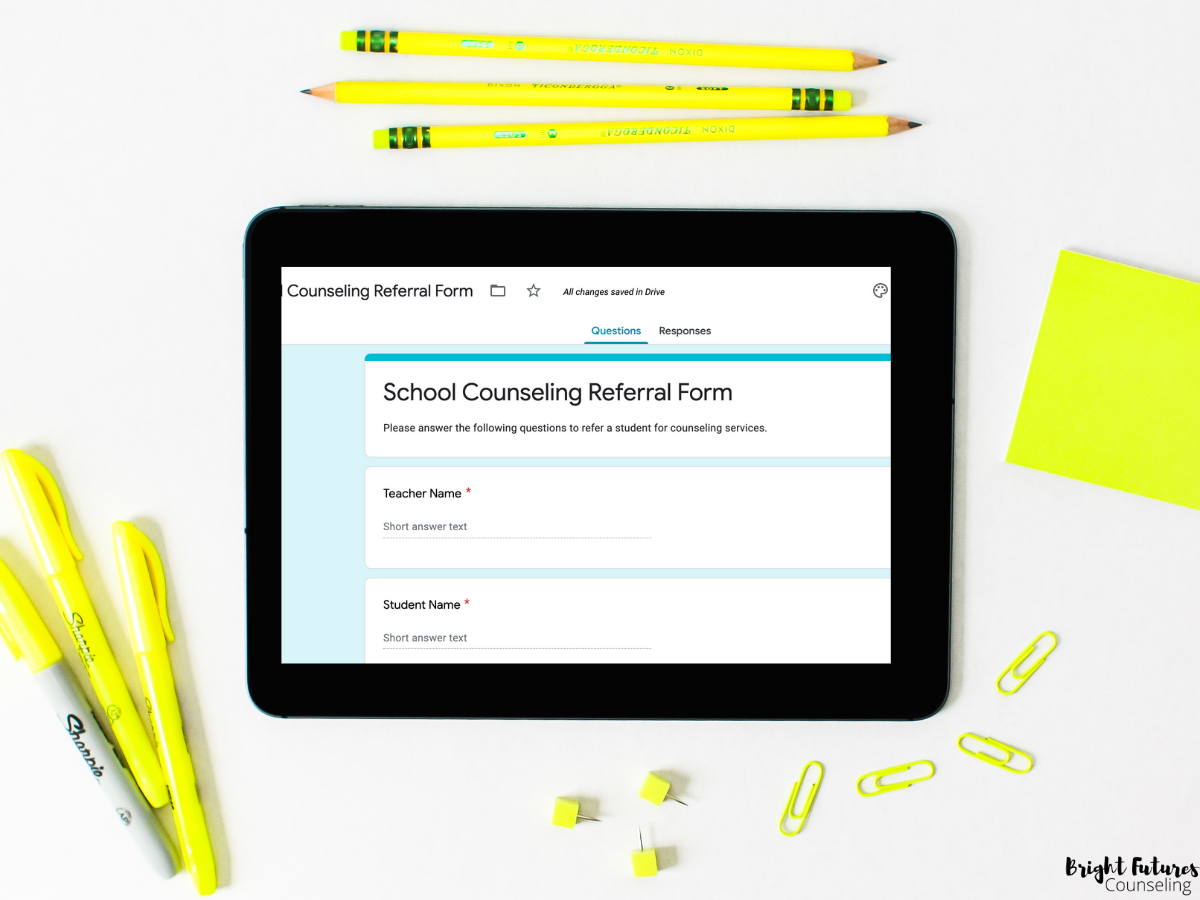6 Ways To Build Counselor-Parent Relationships
'At the end of the day, the most overwhelming key to a child's success is the positive involvement of parents.', Jane D. Hull.
If you've been a school counselor for a while now, you know how important it is to establish and maintain positive relationships with the parent community. Unless administration, teachers, and parents work in tandem with us school counselors, there is only so much we can do to support a child. We could spend 30 minutes a week with a fifth-grader, working on building his confidence, but if he goes back to a home where his grades are all that matter to his parents and not his achievement in sports, we have pretty much hit a wall.
That said, building counselor-parent relationships takes time and effort. In my experience, it has to be intentional and ongoing. Here are a few ways I work on building a relationship with parents:
1. Back to School Nights and Introductory Videos
Going back to school after a restful summer break is not the easiest thing for me. But Back to School Night always excites me. It's that time of the year when I leave no stone unturned in advocating for my role and the services I provide. Here's where I introduce myself, professionally and personally. I usually set up a station and have my Meet the Counselor brochures that parents can take home. Since I typically speak about how MTSS counseling works, I also make sure to give the parent community information about the referral process and even have referral forms printed and available if they'd like to pick up one. Snag your referral forms here.
When we were in the virtual learning mode, I created a short video to introduce myself and the school's counseling program, and also provided links to my brochure and referral form. At this event, I make sure to also talk about my school's policy on safeguarding and child protection. This definitely gives parents (especially the new ones) assurance that our school is a safe space for their children.
2. Monthly Newsletters with a Personal Touch
If your school has a newsletter, it would be great if you could sign up as a contributor with a 'counselor's corner' to send parents snippets of information/suggestions. If not, you could come up with your own and have them sent out to parents at the start of each month. It needn't be too wordy or serious. For example, your write-up could be related to the importance of routines or goal setting at the beginning of the year or home-based SEL-based activity ideas for summer break at the end of the year. Since I host school-wide initiatives related to counseling and social and emotional learning, I make sure to include a relevant write-up and pictures.
If you follow monthly themes for your classroom guidance lessons, you could give parents a sneak peek into what their children will be learning that month. In October (Bullying Prevention Month), for example, I might focus on bullying prevention and what parents can do to help curb it. In the month of February when the focus is on kindness, I might suggest 'bucket-filling' activities that parents can do with their children. Also, make sure to add a personal anecdote every now and then. This kind of communication goes a long way!
This is a simple way to advocate for the importance of your role and educate parents on the services you provide.
3. Referrals and Behavior Surveys
Throughout the year, you will be in touch with some parents more than others. When a student is referred to me either for group or individual counseling, I set up a meeting with the parents to better understand the needs of their child and discuss how I will be working with them. I get informed consent for counseling from the parents, talk about the confidentiality clause, and let them know how often I'll be sharing progress updates. You could also give them a pre-session behavior survey to complete at this time. Check out these that I use. At the end of your sessions with their child, you will again be collecting data to see how they feel their child has progressed/improved.
4. Parent Workshops
One of the best ways to support parents is to send out a needs assessment form based on what topics they would like you to cover during your parent workshops. These workshops could happen once a month and only for a duration of 30 minutes. The session is topical and succinct. Pair it with coffee and donuts for attendance incentive! Potential topics could be 'dealing with school refusal', 'supporting children's mental health and wellbeing', 'building independence', etc. I always make sure these sessions are interactive and I give ample time at the end for parents to ask me questions.
5. Parent-Teacher Conferences
While school counselors are generally not expected to be part of all parent-teacher conferences, there are times I might pop into a few, especially if a teacher has asked me to or the child is seeing me for a check-in or an individual/group session, so that all of us stakeholders are on the same page. This is especially helpful when meeting with parents who don't have too much time to make it to separate meetings with me and the homeroom teacher.
6. Parenting Books and Online Resources
I'm an avid reader and when I'm not picking out kiddie books for my SEL library (see my favorites here!), I try my best to catch up on some professional reading. When I come across a book or an online journal article that might be helpful to some parents in my school community, I go ahead and send out recommendations to them. My go-to suggestions include:
-
The 5 Love Languages of Children by Graham Chapman and Ross Campbell
-
How to Talk so Kids will Listen and Listen so Kids Will Talk by Adele Faber & Elaine Mazlish
How do you build and maintain relationships with parents? What is one new strategy you might try after reading this post? I'd love to know in the comments.
This post contains Amazon Affiliate Links.
SHARE:






